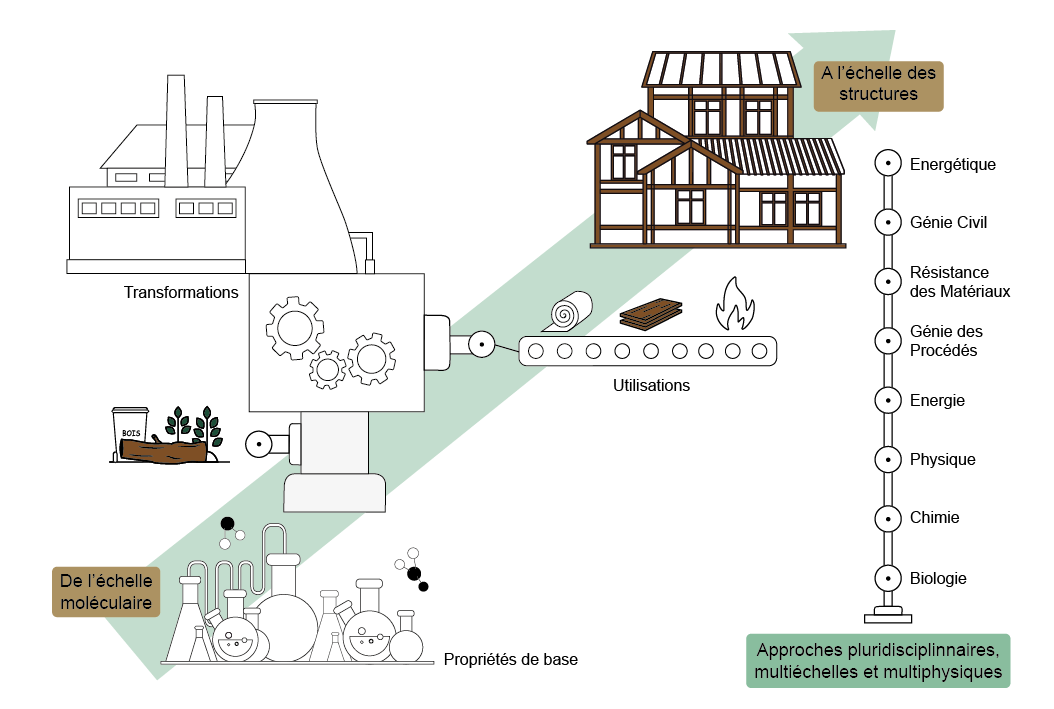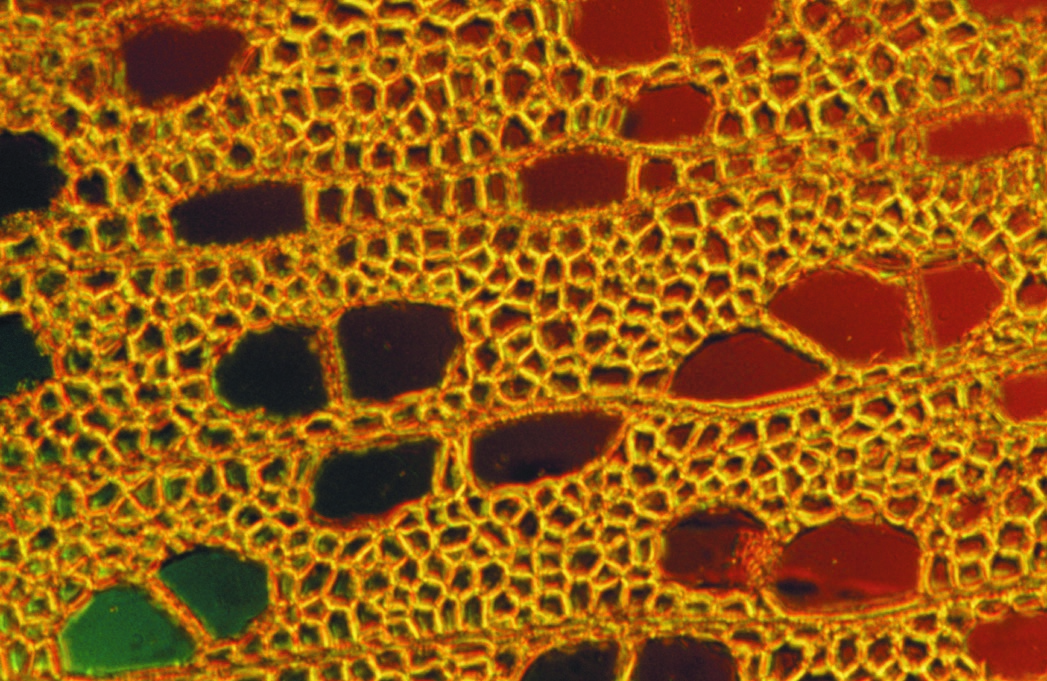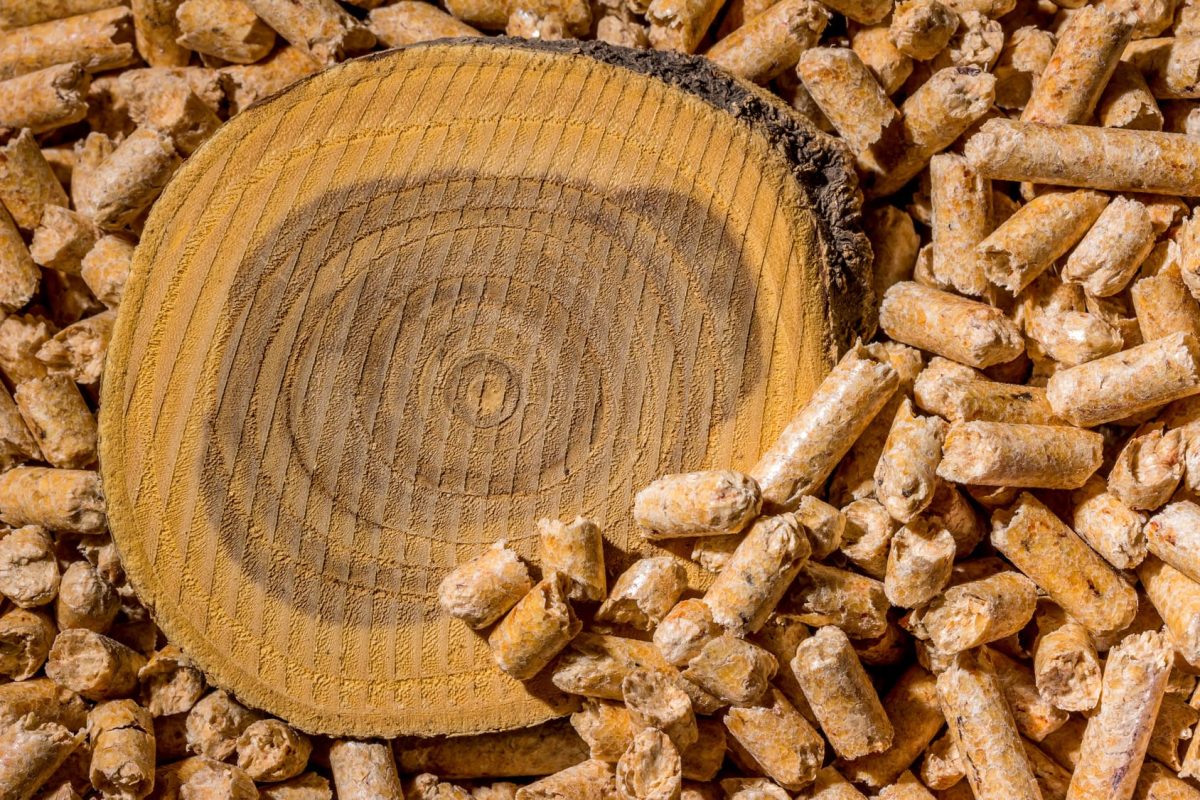LA RECHERCHE AU LERMAB
Au travers des 4 thèmes qui regroupent l’ensemble des activités du LERMAB, des réponses concrètes à ces différents enjeux et différents défis sont apportées via l’utilisation ou la valorisation du matériau bois dans différentes applications et via différents domaines scientifiques. Ainsi, l’approche multi-échelle et pluridisciplinaire de l’Unité représentée sur le schéma ci-dessous prend tout son sens :

Les connaissances et les caractérisations pluri-échelles et multidisciplinaires du matériau bois permettent au laboratoire de travailler sur différents niveaux et diverses applications avec des approches innovantes et complètes liées notamment aux compétences très variées des chercheurs. En effet, le laboratoire compte des chercheurs de section 31 (Chimie théorique, physique, analytique), 32 (Chimie organique, minérale, industrielle), 60 (Mécanique, génie mécanique, génie civil), 62 (Energétique, génie des procédés), 64 (Biochimie et biologie moléculaire) et 68 (Biologie des organismes). Par ailleurs, les travaux vont de l’échelle de la molécule (extraction de molécules chimiques, élaboration de produits) à l’échelle du bâtiment en passant par toutes les échelles intermédiaires : vaisseaux, fibres, bois divisé, broyat, planches, structures, éléments de construction, parois.

Au LERMAB, la recherche commence à l’échelle microscopique, là où la matière révèle son potentiel caché. Les scientifiques extraient et analysent les molécules chimiques contenues dans le bois pour en exploiter les propriétés naturelles. Ces composés sont ensuite valorisés dans l’élaboration de produits biosourcés, innovants et respectueux de l’environnement, destinés à des applications variées telles que la chimie verte, la santé, ou encore les matériaux performants.
Mais l’approche du laboratoire ne s’arrête pas à l’échelle moléculaire. Les chercheurs explorent toutes les dimensions du matériau bois, depuis ses éléments constitutifs comme les vaisseaux et les fibres, jusqu’à ses formes transformées : bois divisé, broyat, planches ou structures. Ces composants sont étudiés dans leur intégration au sein d’éléments de construction et de parois, jusqu’à l’échelle du bâtiment entier. Cette démarche multi-échelle permet de développer des solutions constructives durables, adaptées aux enjeux environnementaux et aux besoins du secteur de la construction bois.


